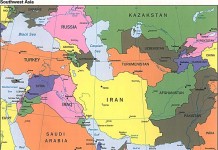P
akistan’s Federal Minister for Minority Affairs Shahbaz Bhatti, a Roman Catholic, was gunned down in Islamabad on March 2, 2011. This is a second high profile assassination of a senior Pakistan People Party (PPP) representative this year, the first one being the governor of Punjab Salman Taseer, he was also killed in Islamabad about two months ago. Both killings are connected to their stance against the inappropriate use of blasphemy laws and to amend them. This article reviews the implications of these high profile assassinations.
Analysis
Response from Religious Leaders
The religious parties and their leaders have unanimously condemned the murder of Shahbaz Bhatti, which was not the case when Salman Taseer was gunned down. The religious leaders are also making a point that Shahbaz Bhatti’s execution should be seen as connected to the incidents related to terrorism, and not to religion. Furthermore, although Tehreek-e-Taliban Pakistan (TTP) has claimed responsibility for the murder, the religious leaders have denied accepting TTP’s claim and have instead blamed foreign hands for conspiracy to destabilize the country and malign religious parties.
Perceptions on Pakistan’s Security and Defense Apparatus
The role of minister’s security protocol is also highly peculiar, which was remarkably missing from the scene. It is not clear if he had directed his security detail to leave, before departing himself to attend a cabinet meeting. In case of Salman Taseer, a member of his own security team had murdered him. Because of this, media reports suggest Bhatti did not fully trust his own security detail. Nonetheless, failure to provide a bulletproof car to Shahbaz Bhatti, who was already under high threat, can fall nowhere else but on the PPP led government.
Such gross negligence in protecting the late minister is criminal in itself. The repeated security lapses are reinforcing international perceptions that Islamists have infiltrated the security and defense apparatus of the country. Additionally, the civil security and criminal justice system are largely inadequate to deal with the kind of security threats confronted by the country. This raises serious questions regarding the protection of its nuclear weapons, and provides reasons for the presence of foreign security personnel in the country.
Local and Global Perceptions
In the aftermath of the Raymond Davis incident, there is a growing belief in the country that foreign hands are involved in creating ethnic and religious divides, a blame previously reserved especially for India.
Furthermore, high profile assassinations are also strengthening western opinion that Pakistani society is being radicalized and ultimately the government could fall in their hands as well.
As was the case with Musharraf, the present fragile PPP government, would also use the threat of extremists to harness foreign support and survive. And in doing so, they are further distancing themselves from the public. As the US is demonstrating by its posture to the revolutions unfolding in the Middle East, eventually it would side with the will of the people, who have so far not turned out to be the religious zealots.



